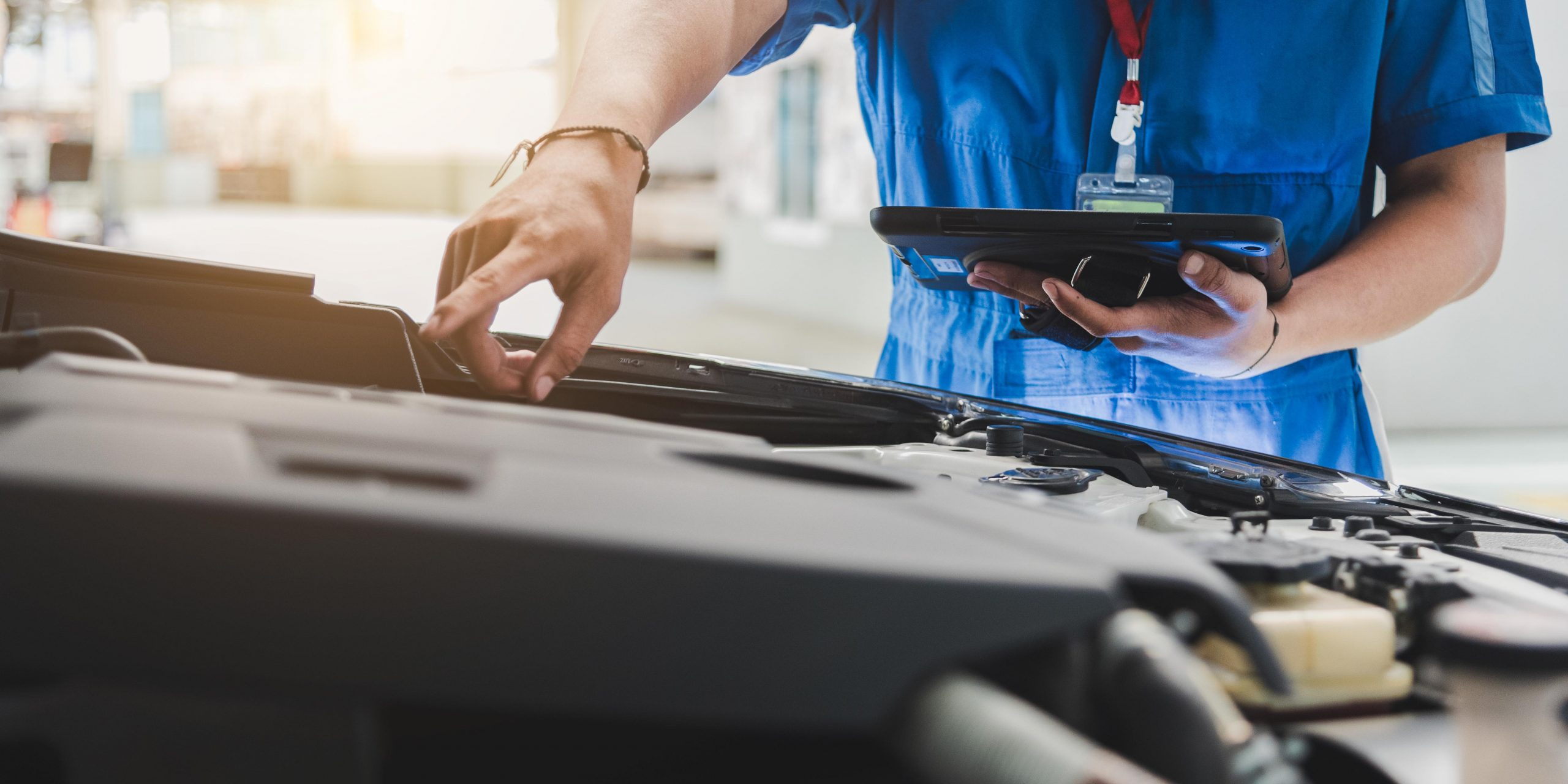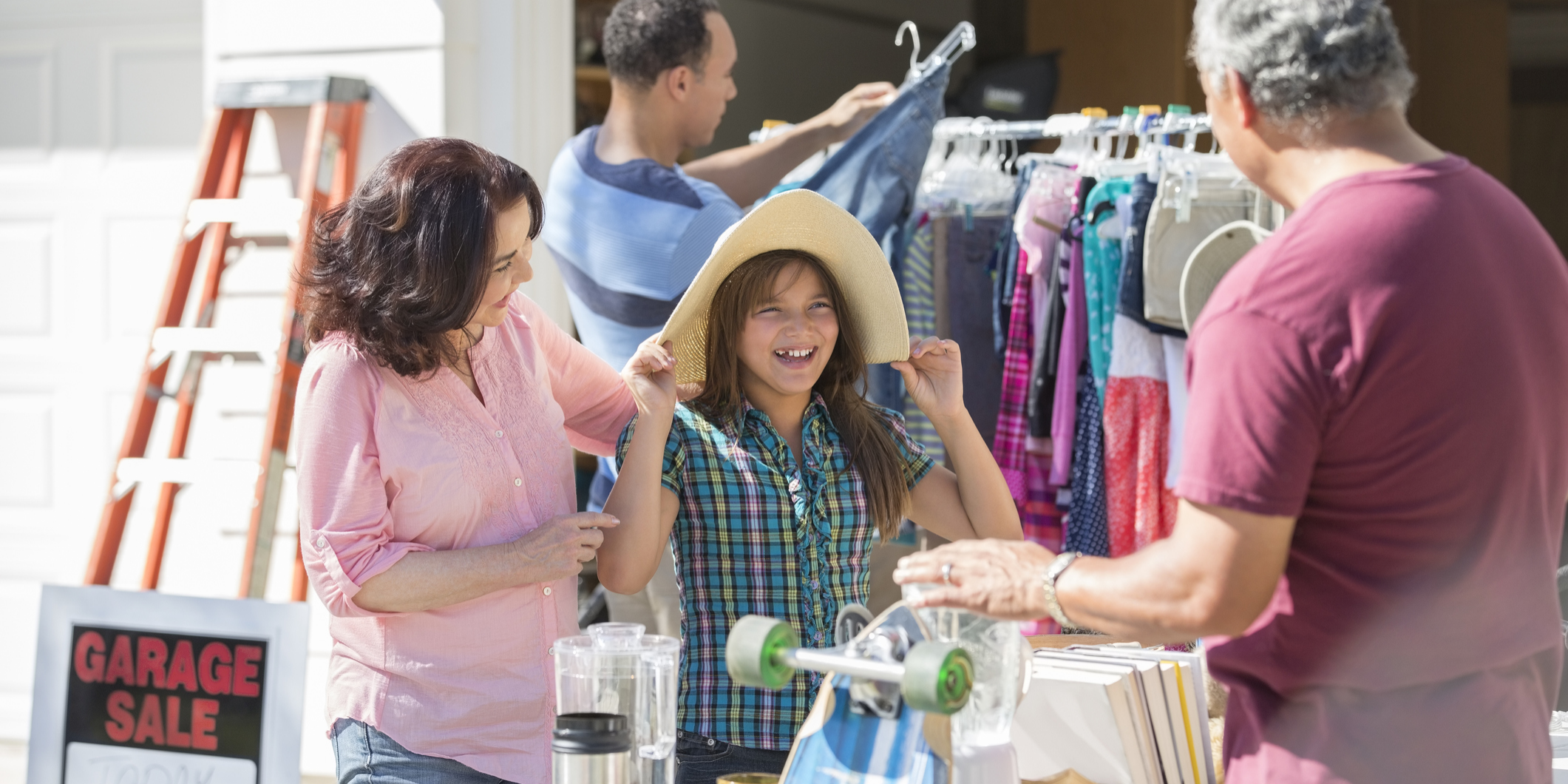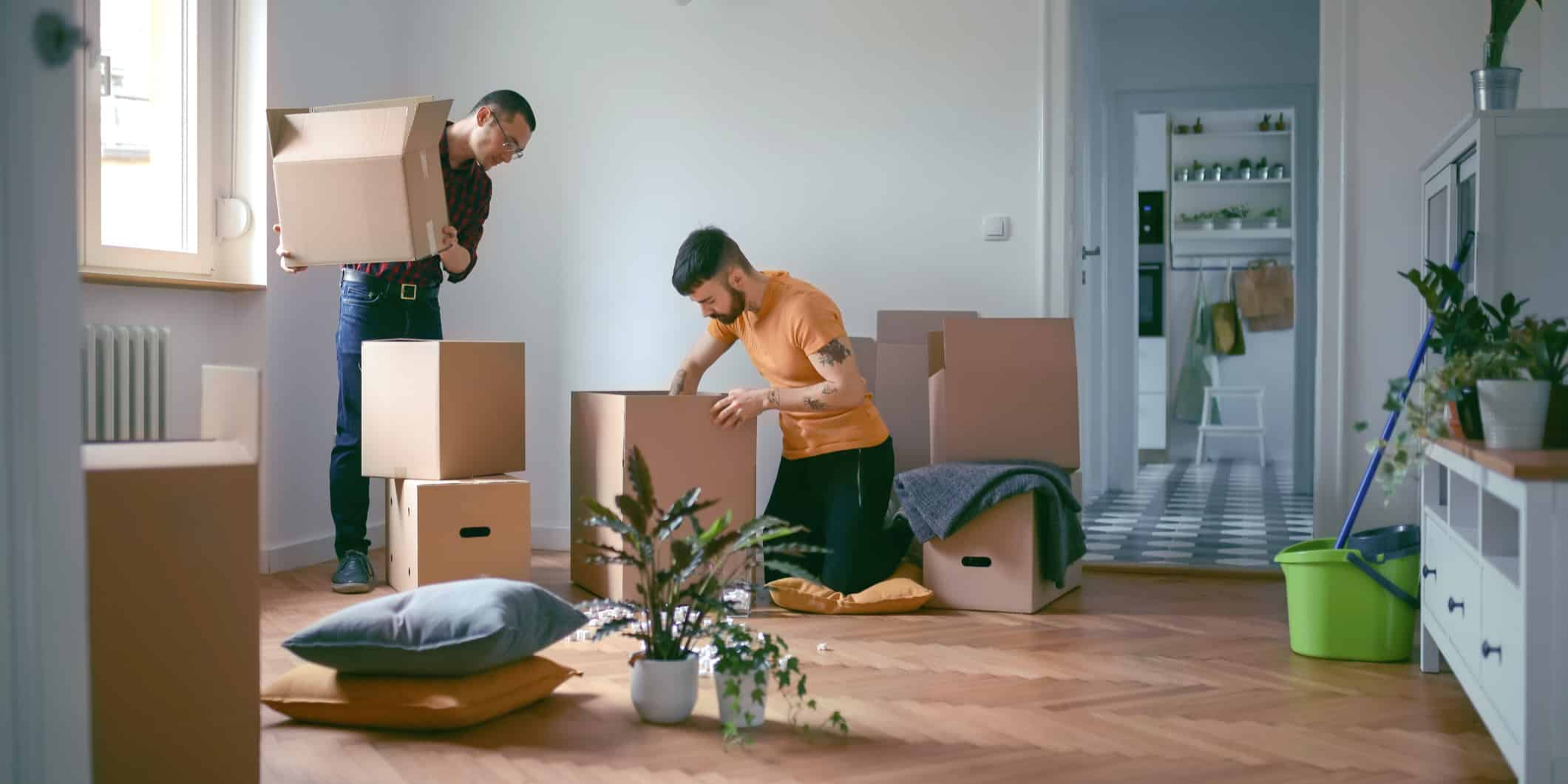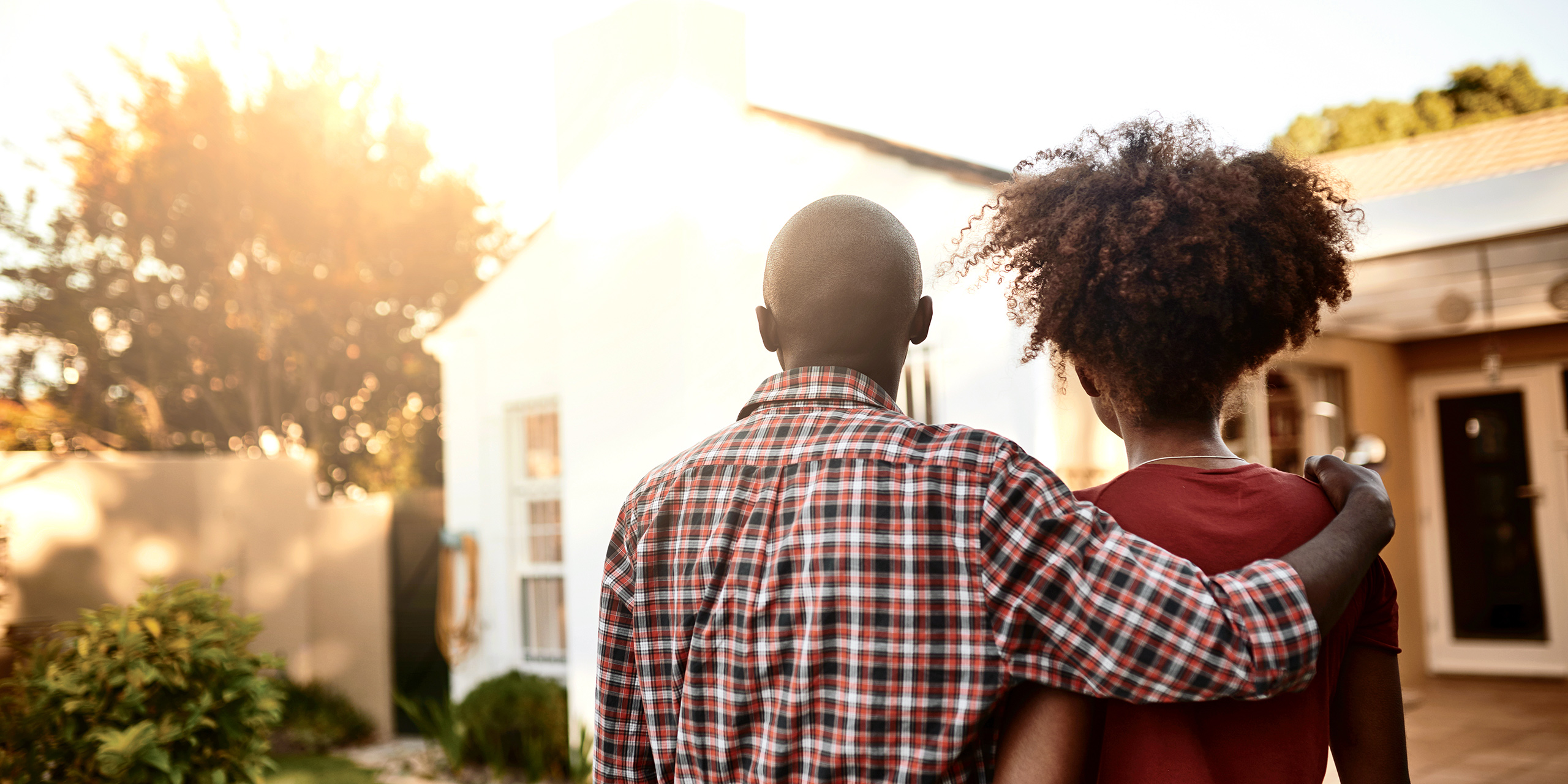Moving to a different state or country is a long-distance move and requires a lot of time, effort, patience and careful planning. A lot can happen before, during and after your relocation, and things can be stressful, daunting and overwhelming, so it pays to plan ahead and be prepared.
How can you take the stress out of your moving project and ensure a smooth and successful relocation? With a well-planned checklist, it can be manageable. We put together a guide containing things to consider when moving interstate or overseas.
Chapters
6 Weeks Before Your Interstate / Overseas Move
1. Create a Central File
Create a central file for your moving documents to keep track of things and easily access the information you need.
• Contracts
• Receipts
• Inventory lists
2. Book a Removal Company
Research a reputable removal company, ask for the information below and book in advance to ensure availability and avoid last-minute stress:
• Moving services offered
• Moving quotes
• Packing and storage options
• Storage options [as required]
3. Evaluate Your Insurance Options
Most reputable companies offer insurance options to protect your belongings during transit, so don't hesitate to confirm this with your removalist.
• Carefully review the terms and conditions of your insurance policy to ensure adequate coverage.
4. Create a Floor Plan for Your New Home
Create a floor plan for your new home to determine which items to take with you and which items to sell or donate.
• Consider furniture placement
• Measure spaces to ensure furniture and appliances fit
• Check if spaces are suitable for their intended purpose
5. Decide What You Need
Look at your present furniture and personal items and assess what to take with you—only pack the things worth keeping.
• Decide which items you no longer need or want
• You can sell the some through a garage sale or on eBay for extra cash
• You can donate the rest to charity
6. Use the AFRA Inventory List
The Australian Furniture Removers Association (AFRA) provides an inventory list to help you determine what items to pack, sell or donate.
7. Plan Your Packing
Plan and discuss your packing and removal requirements with your removal company. You can ask the following to ensure the safety of your belongings:
• Packing services offered
• Packing tips for fragile or valuable items
• Packing materials, such as boxes, tape and bubble wrap
8. Organise the Delivery of Boxes from Your Removalist
If you choose to pack your belongings yourself, speak with your removalist about their recommendations and organise the delivery of your boxes.
• Many companies provide moving boxes to make packing easier and more efficient.
• Moving boxes from your removalist are designed for transportation.
9. Organise Proper Equipment for Packing
Make sure you have all the necessary equipment for packing and label each box with its contents and the room it belongs in to make unpacking easier.
• Tape
• Bubble wrap
• Labels
• Marking pens

International Move
1. Ensure Passports and Travel Documents Are Up to Date and in a Safe Place
If you are travelling overseas, ensure your passports and travel documents are in a safe place to avoid loss or theft and are up-to-date and valid for the duration of your stay.
• Check the visa requirements for the country you are moving to.
• Ensure you have the necessary documents ready.
• Keep your travel documents in a safe, secure place, such as a travel wallet or passport holder.

Two Weeks To Go
1. Check Your Property Thoroughly Before Your Move
Before your move, it's best to thoroughly check your property for any items you may have forgotten about.
• Check the garden for any tools or equipment and dispose of any chemicals or fertilizers as required.
• Check the garage and shed for any items that you no longer need or want and consider holding a garage sale or donating these items to a local charity.
• Check under the house for any stored items, such as seasonal decorations or sporting equipment, and pack these items away as required.
2. Dispose of Hazardous Substances as Suggested by the Supplier
It's crucial to follow the instructions provided by the supplier or local council when disposing of hazardous items (never in your regular trash or recycling), as they can harm the environment. These items can include the following:
• Garden chemicals
• Paints
• Fuel
• Other flammable items
3. Have BBQ Cylinders Purged by a Certified Gas Cylinder Test Station
If you have a gas BBQ, it's best to leave the purging of the cylinder to a certified Gas Cylinder Test Station to ensure any remaining gas is safely removed before your move.
4. Book a Pet Transporter Through Your Removal Company
Pets require special care and attention during a move, so book a Pet Transporter through your removal company to ensure your pets are safely transported to your new home.
• Make arrangements to have pets looked after for at least 2 days before you move.
5. Arrange Transfers
If you have children, it's necessary to arrange transfers for their school or day-care well before your move.
• Contact the relevant schools or day-care providers to inform them of your move and to make any necessary arrangements.
6. Start Packing Ahead of Your Moving Day
If you are packing your belongings by yourself, it's important to start well ahead of your move; begin with items you won't need, such as seasonal clothing or decorations.
• Label every box clearly with room identification.
• Keep a separate list of the contents for your reference.
7. Inform Your Contacts About Your Change of Address
When moving overseas, it's important to inform your list of essential contacts about your new address details by phone, online or through a written request or form.
• Family
• Friends
• Businesses
• Banks
• Utilities
• Government agencies
8. Organise Furniture
If any furniture needs to be dismantled before moving, begin to do it two weeks before your move.
• Keep the small parts and attachments together so they don't get lost.
• Keep everything organised in a small self-sealing bag.
• Tape the bag to the base so it doesn't get separated.
• You can also label the bag clearly which furniture it belongs to and place it in a box.
9. Prepare Your Car For Long Drives
If you're planning to drive your car any distance to your new address, ensure it's in good working order and won't break down on the way by checking the following:
• Oil
• Tyres
• Engine
• Brakes
• Lights and signals
• Other components that are critical for safe and reliable driving
10. Organise Utilities for Your New Home
When moving to a new home, it's important to arrange for your utility services to be connected before your move and make sure everything is scheduled for the day you arrive.
• Telephone
• Electricity
• Internet
• Gas
• Water supplies
• Other services
11. Take Care of Borrowed Items
Be sure to go through the last details before you leave; this includes returning borrowed items in person or using a postage service to return them by mail.
• Return all borrowed DVDs and library books and those borrowed from friends.
12. Make Sure All Items Within the Boat Are Secured
If a boat or trailer is included in the load, ensure all items inside are secured to help prevent damage during transit.
• Some removalists can assist you with this service and ensure everything arrives safely at your new home.
13. Purchase a Street Directory
Purchase a street directory of the city or town you're moving to, so you can navigate the area more easily and find your way around.
• You can use a physical street directory if you are moving to one of the major cities.
• You can also use a GPS device or mapping app on your smartphone.

One Week To Go
1. Redirect Your Mail
Informing the post office about your move and having your mail redirected to your new address will ensure that you will continue to receive the following:
• Bills
• Letters
• Important correspondence
• Other mail
2. Cancel Deliveries
Cancelling deliveries of your subscriptions before your move will ensure that you are not charged for deliveries that you will not receive.
• You can cancel your newspaper and magazine subscriptions to discontinue any delivery services.
3. Reconfirm Travel Arrangements and Pet Care
Your pets may become anxious when they see all the upheaval, so it's best to reconfirm with your removal company the travel arrangements for the vehicles and care for your pets.
• Ensure your pets are enclosed at all times so they don't disappear and cause unnecessary grief.
4. Make a Moving Day List
Make a list of things to do on moving day to stay organised and ensure nothing important is left behind during the move.
• Write down everything you need to organise, donate, sell, and take with you so nothing important is forgotten.
5. Prepare Your Waterbed
If you have a waterbed, make arrangements to have it prepared as per the manufacturer's specifications.
• You can ask the contractor to come the day before you leave.
• Your removalist may also be able to assist.
6. Remove Batteries
If battery-powered items are going into storage or overseas, remove all batteries to prevent damage or corrosion due to battery leakage.
• Take out all batteries before your move so they don’t overheat and leak.
7. Disconnect Special Light Fittings
If you are taking special light fittings with you, organise this now to ensure they are safely disconnected and ready to be transported.
• You can probably do it yourself, but it's best to let a qualified electrician handle the work.
8. Drain Fuel
Drain the fuel from your lawnmower or other containers to prevent spills and leaks during transportation.
• Make sure to clean and empty your lawn mower and other containers before the move.
9. Establish Cut-Off Dates
Contact your suppliers to establish a cut-off or final reading dates to ensure you will not be charged for their services.
• Telephone
• Electricity
• Internet
• Gas
• Water supplies
• Other services
10. Collect Repairs
Collect any articles that are being repaired or have been loaned out to ensure that you have everything you need.
11. Return Borrowed Items
If you forgot to do this two weeks ago, be sure to take care of it this week so you don't have to worry about it later on.
• Returning borrowed items is a common task many people forget when moving house.
12. Dispose of Unsold Items
Dispose of any items that did not sell at the garage sale or on eBay to minimise the amount of clutter before your move.
13. Arrange Parking or Access
You can make special arrangements for parking or access for the removalist to your home to ensure they have everything they need to safely and efficiently move your belongings.

Two Days To Go
1. Arrange Payments
At this point, make sure that you have the necessary finances and arrange payments that need to be made on your moving day. These may include the following:
• Payments to the removalists
• Rental bond for your new home
• Any other related expenses
2. Check Your Car Again
If you plan to travel any distance by car, check the following before you start your journey to ensure it is roadworthy.
• Oil levels
• Water levels
• Tyre pressure
• Engine
• Brakes
• Lights and signals
3. Pack Those You Will Need Immediately
It’s important to pack a separate bag or box for essential items that you will need immediately after moving. These items may include the following:
• Clothing
• Toiletries
• Medications
• Important documents
• Phone chargers
• Other items that you will need as soon as you arrive at your new home
4. Collect Dry Cleaning
If you have any items at the dry cleaners, collect them before you move so you won’t have to worry about returning to collect them later.
5. Do the Laundry
It’s a good idea to do all your laundry before moving day to ensure you have clean clothes to wear when you arrive at your new home and make the unpacking process easier.
• Do the laundry.
• Fold the clothes neatly.
• Pack them away in boxes or suitcases.
6. Dispose of Remaining Chemicals, Flammables and Garbage
It’s crucial to dispose of any chemicals, flammable or other hazardous materials that you won’t be taking with you, as these items should be disposed of safely and responsibly and should not be tipped down the drain or thrown in the garbage.
7. Seal Containers Containing Non-Flammable Liquids
To avoid any spills or leaks during the move, make sure non-flammable liquids are tightly sealed and packed in waterproof containers, such as the following:
• Plastic bags
• Jars
• Bottles
• Cans
8. Pack Blinds or Curtains
Before moving day, take down your blinds or curtains and pack them carefully to ensure they don’t get damaged during the move.
9. Conclude Your Packing
Before moving day, it’s essential to conclude your packing by keeping an inventory to make it easier to keep track of your belongings during the move.
• Make sure all items are on your inventory.
• Make sure each box is numbered and matches your inventory.

One Day To Go
1. The Day Your Removalists Arrive
If you have hired professional movers, today will be the day they arrive to pack your belongings following your instructions.
• Be there to supervise.
• Give instructions on what should be packed and what should be left behind.
• Be sure to communicate clearly to the movers about fragile items or special requests.
2. Separate Items You Have Packed from Those to Be Packed
If you are taking some items you have packed yourself, separate them in an area, such as your car if you're driving, where they don't get mixed with the ones your movers will pack. These items can include the following:
• Jewellery
• Handbags
• Cameras
• Documents
• Wallet
• Phone
• Keys
• Important documents, e.g., passport or ID
3. Defrost and Clean Out Your Fridge and Freezer
Your fridge and freezer are two of the most important appliances in your home. They require special attention, so make sure to defrost and clean them out a day before your moving day.
• Defrost and clean them out thoroughly with warm soapy water.
• Wipe the inside surface with vanilla essence to prevent any build-up of mildew or nasty smells.
• Check with the manufacturer whether the fridge motor needs to be specially secured.
• Dispose of food items that are open and will go off if not unpacked within 2 days.
4. Wash and Dry All Dishes
Dishes require special care, so check if they are clean and ready for packing before your moving day.
• Wash and dry all of your dishes thoroughly
• Wrap them with bubble wrap or newspaper
5. Clean Out Your Medicine Cabinet
If you have any prescription or over-the-counter medications in your home, take the time to clean out your medicine cabinet before you move.
• Check the expiration dates on all of your medications.
• Properly dispose of any drugs that are no longer needed.
6. Check All Your Drawers
It's important to carefully inspect your drawers before your moving day to ensure nothing gets damaged during transit.
• Remove any items that are heavy, breakable or that could spill.
• Make sure that you pack these items separately and label them clearly.
7. Prepare Your Washing Machine
Waterbeds require some special attention when you're moving, so make sure that you follow the manufacturer's specifications to prepare for packing.
• Follow the manufacturer's instructions for draining and disassembling the bed.
• Pack it carefully using plenty of padding to protect it during transit.
9. Leave Your Forwarding Address and Contact Number
Once you're all packed up and ready to go, leave your forwarding address and contact information for new owners or occupants of your home to ensure that any important mail or messages get forwarded to you.
10. When to Notify the Police and Neighbours
If your property is vacant for a period of time upon moving out before new occupants move in, take a few steps to ensure the security of the property. Some actions you can take include the following:
• Let your local police department know that your property will be vacant to allow them to keep an eye on it and do extra patrols in the area to deter potential break-ins or vandalism.
• Let your neighbours know and ask if they can keep an eye on things, too, as they may be able to report any suspicious activity to the police or let you know if anything seems out of the ordinary.

Moving Day
1. Make Sure the Removalists Can Park Their Vehicles
When the removalists arrive, make sure they can park their vehicles to make the move much smoother and more efficient.
• You may need to arrange a permit with your local council.
• If you live in an apartment complex, try the building manager.
• Ensure that there is sufficient space to park close to your home.
2. When to Appoint an Agent to Act on Your Behalf
If you can't be present during the move, you can appoint an agent who will be there to act on your behalf and do these:
• Ensure that everything goes according to plan.
• Answer any questions the removalists may have.
• Sign off on the inventory list.
3. Give the Removalists a Walk-Through of Your Home
Before the removalists start loading your belongings, walk around the house with them to show exactly what you want to be done to ensure everything is packed correctly and efficiently.
• Show them which items are fragile
• Show them which items need special care
• Show them which items are of particular importance
4. Pack Yourself a Survival Kit
Moving can be a stressful and tiring experience, so pack yourself a survival kit to make the transition to your new home much easier and more comfortable. Your kit can include the following items:
• Toiletries
• Snacks
• Personal items
• Spare clothing
• Tea towels
• Dish cleaning equipment
• Drinks (tea, coffee, milk, etc.)
• Other personal items
5. Keep Pets Calm and Secure
Moving day can be stressful for pets, so make sure they are calm, safe and secure during transit.
• Make sure they are confined to a safe area away from the removalists.
• Keep children out of their way to avoid accidents.
6. Collect All House Keys
Make sure to collect all the keys to the house before your move, which can include any spare keys you may have given to friends or family.
• Keep these keys in a safe place, e.g., a handbag or wallet.
• Keep them out of the removalists' way too.
7. Keep Some Items in Your Car Boot
If you're transporting any items yourself, make sure they are packed securely in your car boot and out of sight.
• Lock all doors of your car.
• Keep your keys in your pocket for safekeeping.
• If renting, keep keys in the car ready to be delivered to the agent as you leave.
8. Make Sure Nothing Has Been Left Behind
Make a final check to ensure everything has been packed and nothing has been left behind. Go through all the corners of your house, including these areas:
• Cupboards
• Cabinets
• Shelves
• Drawers
• Closets
• Storage areas
9. Make a Final Check in the Garden Area
If you have a backyard or a garden area, make a final check of all the items there to ensure nothing has been left behind.
• Shed
• Checking tools
• Garden equipment
• Other items in the garden
10. Walk Around One Last Time Before You Go
Before the removalists leave, walk around your property and check if everything has been packed and loaded onto the truck. If moving interstate or your goods are going to storage, check the inventory list and ensure everything is accounted for before signing it.
11. Turn Off the Power to the House
Before leaving your property, ensure you have turned off all power to avoid electrical hazards and tightened all the taps to keep away from leaks or damage.
• Turn off all electrical switches.
• Disconnect all appliances.
• Turn off the gas supply.
• Tighten all the taps.
12. Lock All Doors and Windows
Finally, before saying goodbye to your old home, make sure that all doors and windows are locked and double-check if all entry points are secured to ensure the safety and security of your property.

Your New House
1. Conduct a Walk-Through Before Moving In
If renting, it's best to conduct a thorough walk-through to inspect the condition of the house or apartment before you move in to identify any pre-existing damage or issues you can report to the landlord or property manager and avoid disputes over any damage that may occur during your tenancy.
• Take note of any scratches, dents, or marks on the walls, floors, and ceilings.
• Check the doors and windows to ensure they open and close properly.
• Inspect the appliances to make sure they're in good working order.
• Document or take photos or videos of the property as evidence of its condition.
2. Make Use of the Floor Plan
Six weeks ago, you created a floor plan of your new home for the best furniture placement and room setup. When the removalists arrive, you may direct them to place the heavy furniture in the designated locations and communicate your preferences clearly so they know where to put everything.
3. Check the Inventory Carefully
If your goods are coming from storage, interstate or overseas, check the inventory carefully and sign off on it once verified all items on the list are accounted for to avoid any unpleasant surprises when you start unpacking in your new home.
• Go through the inventory list carefully and ensure each item is listed correctly.
• If you notice any discrepancies or missing items, notify the movers immediately.
• Once everything is accounted for, sign off on the inventory list to acknowledge receipt of your belongings.
4. Locate All Keys to Your New House
When you move into a new home, locate all the keys to the property: keys to the front and back doors and any windows and gates.
• Make sure that all of the keys are working properly.
• Make sure you have spares in case any are lost or misplaced.
• Consider changing the locks to ensure you're the only one with access to the property.
5. Consider Changing All the Locks
If you are concerned about security, it's a good idea to replace all of the locks in your new home to give you peace of mind, knowing that you're the only one with access to the property. This is a relatively simple and inexpensive process that can be completed quickly by a locksmith.
6. Check If Essential Utilities Are Connected
Check if all essential utilities are connected and working properly before you move in to avoid any unexpected disruptions. Contact the relevant service providers in advance to arrange for the connections of the following:
• Gas
• Electricity
• Internet
• Telephone services
7. Turn on the Hot Water System
When you move into your new home, turn on the hot water system to ensure that it's working well and identify possible issues with the system to have them fixed before they become more serious.
8. Ensure the Safety and Comfort of Your Pets
Moving to a new home can be a stressful experience for pets, so it is best to ensure their safety and comfort before the move and once you arrive at your new home by doing these:
• Pack plenty of food, water, toys, and other essentials for your pets.
• Bring any familiar items from your old home, such as their bed or a favourite toy.
• Set up a designated area for your pets that is safe and secure at your new house.
• Make sure your pets have access to plenty of food, water, and comfortable bedding.
• Check on your pets frequently to make sure they are adjusting well.
• If you have a dog, take them for a walk around the neighbourhood to help them become familiar with their new surroundings.
• If you have a cat, keep them inside for the first few weeks until they have adjusted to their new home.
9. When Appropriate, Speak with Your Immediate Neighbours
It's always a good idea to introduce yourself to your new neighbours and get to know them. This can help you make new friends in your area, build positive relationships with your neighbours and create a welcoming and friendly community in your new home.
• When appropriate, take the time to knock on your neighbours' doors and introduce yourself.
• You can also attend local community events or join a neighbourhood group to get to know them better.
• Be respectful of your neighbours' privacy and boundaries, and be mindful of noise levels and other potential sources of disturbance.
• If you have concerns or issues with them, try to address them directly and calmly, and be willing to listen to their perspective as well.

Essential Contacts
- Doctor
- Accountant
- Lawyer
- Vet
- Dentist
- Private Health funds
- Bank - Credit Card
- Financial Institutions
- Share Companies
- Schools
- Electricity
- Water
- Gas
- Telephone
- Council
- Australia Post
- RTA – Motor Registry (within 7 days)
- Insurance – life insurance
- car insurance
- home and contents
- Memberships
- Library
- Employers – Group Certificates
- Superannuation
- Subscriptions
- Magazines
- Automobile Associations
- Rental and Hire Purchase Authorities
- Sports Clubs
- Golf, Football, Squash
- Church
- Government Departments
- Social Security
- Family Allowance
- Superannuation
- Pensions
- Insurance
- Electoral Office (within 4 weeks)
- Tax Office (within 7 days)


